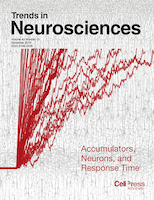
INTERNATIONAL JOURNAL OF DEVELOPMENTAL NEUROSCIENCE
metrics 2024
Elevating Academic Discourse in Developmental Neuroscience
Introduction
The INTERNATIONAL JOURNAL OF DEVELOPMENTAL NEUROSCIENCE is a critical platform for disseminating cutting-edge research in the field of developmental biology and neuroscience. Published by WILEY, this esteemed journal has been contributing to the academic community since its inception in 1983, and continues to serve as a vital resource through to 2024. With an impact factor that reflects its influence in the field—ranking in Q3 for both Developmental Biology and Developmental Neuroscience—this journal presents an opportunity for researchers, professionals, and students alike to engage with pioneering studies and extend their understanding of complex developmental processes. Although not open access, the journal provides an essential repository of knowledge for those seeking to explore the nuances of neurological development and related disciplines. It actively supports academic discourse and research dissemination, thereby playing a significant role in advancing our collective understanding of developmental neuroscience.
Metrics 2024
 0.52
0.52 1.70
1.70 2.00
2.00 97
97Metrics History
Rank 2024
Scopus
IF (Web Of Science)
JCI (Web Of Science)
Quartile History
Similar Journals

JOURNAL OF DEVELOPMENTAL AND BEHAVIORAL PEDIATRICS
Innovating research to enhance child and adolescent well-being.JOURNAL OF DEVELOPMENTAL AND BEHAVIORAL PEDIATRICS, published by Lippincott Williams & Wilkins, stands as a pivotal platform for interdisciplinary research in the fields of pediatrics, psychology, and mental health. Established in 1980 and with a comprehensive coverage extending to 2024, this esteemed journal operates within the realms of developmental and educational psychology, medicine, and psychiatry, earning a commendable Q2 ranking in its respective categories as of 2023. Its overarching objective is to disseminate high-quality, peer-reviewed studies that address the intricate interplay between developmental milestones and behavioral health in children. Although it does not currently offer open access, the journal's influential presence in the scholarly community is underscored by its strategic positioning within the Scopus rankings, making it an invaluable resource for researchers, practitioners, and students committed to advancing the health and well-being of children and adolescents.

TRENDS IN NEUROSCIENCES
Navigating the Evolving Landscape of NeuroscienceTRENDS IN NEUROSCIENCES, published by CELL PRESS, is a leading journal in the field of neuroscience, offering cutting-edge insights and important developments in the rapidly evolving landscape of brain research. With an impressive Impact Factor and ranking in the top quartile (Q1) of the category for Neuroscience (miscellaneous), it is positioned as a vital resource for researchers and professionals seeking to stay abreast of the latest discoveries and trends from 1978 to the present. Specifically ranked #3 out of 113 in General Neuroscience by Scopus, this journal promotes the interdisciplinary exchange of ideas and knowledge, making it an essential platform for students and experienced scholars alike. Although it is not an Open Access journal, its value lies in its rigorous peer-review process and commitment to maintaining the highest standards of academic integrity. By continuing to explore the complexities of neural processes and behavior, TRENDS IN NEUROSCIENCES plays a crucial role in shaping the future of neuroscience research and education.

Review Journal of Autism and Developmental Disorders
Unveiling insights into autism and beyond.Review Journal of Autism and Developmental Disorders, published by Springer Heidelberg, stands as a leading platform for the dissemination of groundbreaking research in the realm of autism and developmental disorders. With an ISSN of 2195-7177 and an E-ISSN of 2195-7185, this journal not only showcases high-quality research but also emphasizes the crucial intersections between behavioral neuroscience, cognitive neuroscience, developmental neuroscience, and psychiatry. Notably, the journal has achieved a prestigious Q1 ranking across these categories, reflecting its impact and relevance; it ranks 10th in behavioral neuroscience and 5th in developmental neuroscience within Scopus metrics. Spanning from 2014 to 2024, the journal is dedicated to fostering a deeper understanding of autism spectrum disorders and related conditions, making it indispensable for researchers, clinicians, and students alike. While it operates under a traditional access model, the quality of the peer-reviewed articles ensures that it remains a valuable resource in the academic community.

NEUROBIOLOGY OF LEARNING AND MEMORY
Bridging Neuroscience and Psychology for Deeper InsightsNeurobiology of Learning and Memory is a prestigious journal dedicated to the exploration of the neural mechanisms underlying learning and memory processes. Published by Academic Press Inc Elsevier Science, this journal boasts a strong reputation within the field, as evidenced by its impressive impact factor and high quartile rankings in multiple categories, including Q1 in Behavioral Neuroscience and Q2 in Cognitive Neuroscience. Having provided a platform for groundbreaking research since its inception in 1995, the journal aims to disseminate influential findings that further our understanding of cognitive processes, shaped by robust empirical studies and theoretical developments. Researchers and professionals in neuroscience, psychology, and related disciplines will find invaluable insights and advancements that underscore the journal's commitment to fostering knowledge and innovation within these fields. While it currently operates under a subscription model, its comprehensive coverage of crucial topics positions it as a vital resource for those engaged in the intricate study of learning and memory.

DEVELOPMENTAL BIOLOGY
Illuminating the Pathways of Developmental ScienceDEVELOPMENTAL BIOLOGY, published by Academic Press Inc., Elsevier Science, stands as a pivotal journal in the fields of cell biology, developmental biology, and molecular biology since its inception in 1959. Renowned for its rigorous peer-review process, this journal serves as a platform for publishing cutting-edge research, reviews, and insights that drive forward our understanding of developmental processes at the cellular and molecular levels. With an impressive track record, it is classified in the Q2 quartile across multiple categories, reflecting its significant impact and relevance in academia and research communities. Although the journal does not provide Open Access options, it remains accessible via numerous academic databases, ensuring a wide reach for researchers, professionals, and students alike. With a commitment to advancing the field, DEVELOPMENTAL BIOLOGY continues to be essential reading for those looking to stay at the forefront of developmental research and its applications.

NEUROSCIENCE AND BIOBEHAVIORAL REVIEWS
Empowering research that shapes the future of neuroscience.NEUROSCIENCE AND BIOBEHAVIORAL REVIEWS, published by PERGAMON-ELSEVIER SCIENCE LTD in the United Kingdom, serves as a leading interdisciplinary platform for the dissemination of pioneering research and reviews in the realms of Neuroscience, Behavioral Neuroscience, Cognitive Neuroscience, and Neuropsychology. With an impressive impact factor reflected in its Q1 ranking across multiple categories for 2023, the journal is recognized for its rigorous peer-reviewed content that influences the advancement of scientific knowledge in behavioral and cognitive research. An essential resource for researchers, professionals, and students alike, the journal emphasizes the exploration of complex neural mechanisms that underlie behavior and cognitive processes. Despite being a subscription-based publication, the journal's extensive archive from 1978 to 2024 fosters a wealth of knowledge designed to inspire and facilitate future advancements within the field.

Frontiers in Integrative Neuroscience
Connecting minds through integrative neuroscience.Frontiers in Integrative Neuroscience, published by FRONTIERS MEDIA SA, is an esteemed open-access journal dedicated to advancing our understanding of the intricate workings of the nervous system. Since its inception in 2007, this journal has become a key resource for researchers and professionals in the field, covering a wide range of topics including cellular and molecular neuroscience, cognitive neuroscience, and sensory systems. With a reputation bolstered by its open-access model, Frontiers in Integrative Neuroscience aims to promote expedient dissemination of high-quality research, ensuring that all findings are readily accessible to the scientific community and beyond. The journal has achieved a commendable recognition, ranking in the upper tiers of its respective categories according to Scopus, with a Q2 ranking in both cognitive neuroscience and sensory systems, and a Q3 ranking in cellular and molecular neuroscience. Based in Switzerland, it continues to be a pivotal platform for innovative research that shapes our understanding of neural dynamics, encouraging collaboration and knowledge exchange among scholars worldwide.

JOURNAL OF AUTISM AND DEVELOPMENTAL DISORDERS
Advancing understanding of autism and developmental disorders.JOURNAL OF AUTISM AND DEVELOPMENTAL DISORDERS, published by Springer/Plenum Publishers, is a premier academic journal dedicated to advancing knowledge in the field of autism and related developmental disorders. With an impressive impact factor reflecting its reputation for rigorous peer-reviewed research, this journal has firmly established itself within the Q1 category of Developmental and Educational Psychology, ranked #32 out of 360 journals in its category, placing it in the top 91st percentile. The journal covers a broad range of topics, including intervention strategies, developmental trajectories, and the neurobiology behind autism spectrum disorders, making it an essential resource for researchers, educators, and clinicians alike. Since its inception in 1979, the journal has maintained a commitment to disseminating significant findings that can contribute to better understanding and support for individuals with developmental disorders, promoting interdisciplinary dialogue and collaboration. While it is not offered as open access, the Journal of Autism and Developmental Disorders remains a vital platform for the dissemination of transformative research in this crucial area.

Frontiers in Systems Neuroscience
Unlocking the secrets of neural systems.Frontiers in Systems Neuroscience is a premier open-access journal published by FRONTIERS MEDIA SA, dedicated to advancing the understanding of the complex systems that underpin neural function and behavior. Established in 2007 and based in Switzerland, this journal has gained recognition for its rigorous peer-reviewed articles that contribute significantly to the fields of Cellular and Molecular Neuroscience, Cognitive Neuroscience, and Developmental Neuroscience. As of 2023, it proudly holds a Q2 ranking in several neuroscience categories, reflecting its high impact and relevance in the academic community. The journal is accessible to researchers, professionals, and students worldwide, providing a platform for innovative research while promoting collaborative scientific dialogue. With a commitment to open access, Frontiers in Systems Neuroscience ensures that groundbreaking findings are readily available to enhance knowledge sharing across the globe. This makes it an essential resource for anyone looking to stay at the forefront of neuroscience research.

SYNAPSE
Pioneering Research in Cellular and Molecular NeuroscienceSYNAPSE, an esteemed journal in the field of Cellular and Molecular Neuroscience, is published by Wiley and serves as a vital platform for disseminating groundbreaking research in neuroscience. Established in 1987, this journal has been pivotal in exploring the intricate mechanisms governing synaptic function and neural communication, contributing to our understanding of the nervous system. With an ISSN of 0887-4476 and an E-ISSN of 1098-2396, SYNAPSE is indexed in Scopus and currently holds a Q4 quartile ranking in its category, reflecting its niche yet significant presence within the research community. Despite its recent ranking in the 21st percentile among its peers, the journal’s commitment to quality and innovation remains unwavering. It is published from Hoboken, New Jersey, and although it is not an open-access journal, it provides invaluable insights and critical reviews that are pivotal for researchers, professionals, and students alike who seek to advance their knowledge in the dynamic field of neuroscience. Join us in contributing to the ever-evolving discourse in cellular and molecular neuroscience through SYNAPSE.